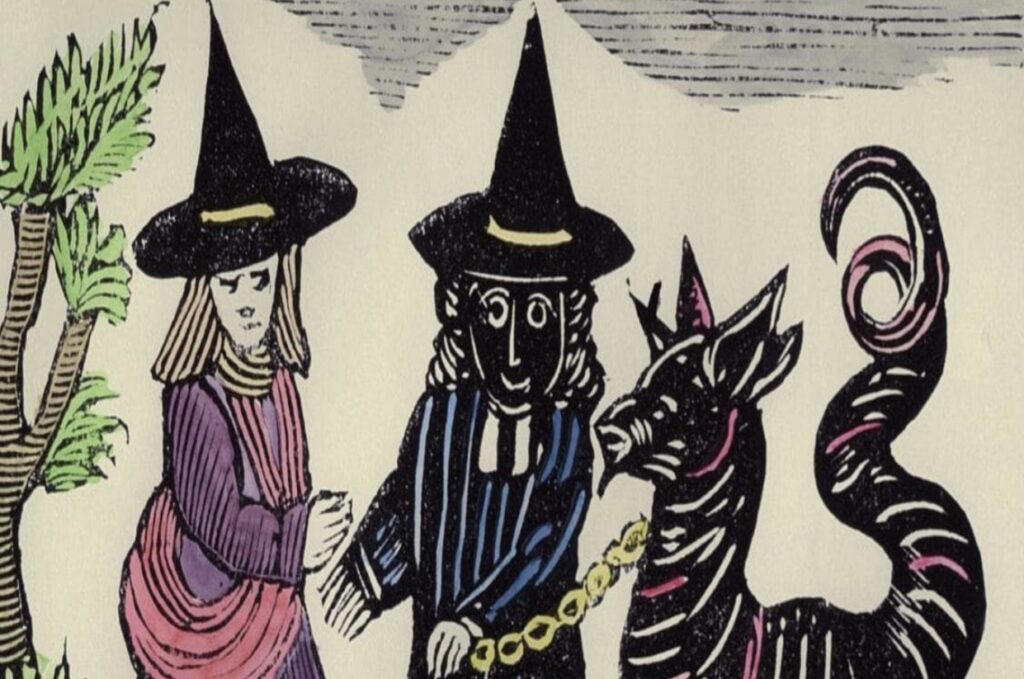[Yahoo News] Witchcraft is thriving in the US, with an estimated 1.5 million Americans now identifying as witches – more than the total number of Presbyterians. As Christianity declines across the country, paganism has swung to the mainstream, with witchcraft paraphernalia for sale on every high street and practises normalised across popular culture. In the past two years, it has also become darkly politicised.
Dakota Bracciale, a 29-year-old transgender/queer witch and co-owner of Catland Books and witch shop in Brooklyn, is pleased with the outcome of the ritual hex placed on US Supreme Court Justice Brett Kavanaugh in October. The curse, carried out from Catland Books, was well attended by witches, atheists ad humanists – and was followed around the country on social media.
Millennials, says Bracciale, are looking for spiritualism outside traditional religion. “The hex centres on the notion that we live in a universe of chaos, entropy, destruction, death, decay with a final ending of oblivion – scientists are telling us. So the witch does everything for themselves – there is no other help in this universe of decay and chaos. If you don’t get in the driver’s seat things will just get worse,” the witch said.
In a wide-ranging discussion with the Telegraph, Bracciale, who described the interview questions as “sensationalist”, talked about political hexes and witchcraft in general.
Bracciale is “absolutely” willing to cause physical harm through a hex – “no issue with that”. And while Bracciale would have been just as pleased with the new Supreme Court Justice’s death, resignation or physical disfigurement, the main goal of the Kavanaugh hex, and the three hexes on President Donald Trump from Catland Books this summer, was to “let them be exposed for who they are – especially as impotent men”. The curse began with a recitation of the Biblical scripture Psalm 109: 8: “let his days be few, let another take his office.”
Catland Books is replete with Christian images including the Archangel Michael, Christian defender against the demonic, and the Virgin Mary. Bracciale, a self-described sexual abuse survivor, who grew up in a born-again-Christian evangelical cult in Arizona, takes umbrage at the notion that witchcraft and Christianity are mutually exclusive. Witchcraft “has a ton of roots in Christianity”, the Brooklyn witch says. Indeed, in Bracciale’s view, the Bible is a spell book, particularly the Book of Psalms.
Witchcraft is powerful, according to Bracciale, because of the “intersectionality of feminism, sexuality, gender, the fight for freedom, eschewing the patriarchy and having sort of a vitriolic response towards it”.
US justice department memos were leaked to the press shortly after the Kavanaugh hex exposing potential attacks on transgender Americans’ rights – signalling a successful hex for Bracciale. The witch also believes that the Catland hexes on Mr Trump helped facilitate the myriad woes the US president has experienced in the past six months.
Bracciale hopes that hexes or curses will be used more frequently in politics in the future.
Careful to point out that “witchcraft is not a religion, it’s not a belief system, it’s not an ideology, it’s a practice,” this witch “has no time for Wicca”, a religion that went public in 1954.
In the confusing, loosely defined but growing world of witchcraft in America, many millennial witches may disagree with Bracciale’s views.
Three religious surveys from Trinity College in Connecticut concluded that the practice of Wicca witchcraft has increased continuously between 1990 and 2008 in the US.

That growth trend was confirmed by the Pew Research Center in 2014, whose surveys reported that more Americans identify as Wiccan, a form of modern paganism created in England, or pagan than as Presbyterian. At the time of the surveys, there were 1.4 million American Presbyterians and about 1.5 million Wiccans.
In addition to political protest theatre, the American beauty industry now caters to the phenomenon referred to as the “witch aesthetic”.
GOOP, the $250 million lifestyle company founded by the actress Gwyneth Paltrow, is not lacking for customers who are interested in the mystical side of the wellness industry that pushes the use of crystals, tarot cards, and astrology. The mainstream Nordstrom Department Store collaborated with the wellness crystal company Goldirocks to release a limited edition crystal set.
So, it may have surprised San Francisco-based Pinrose, an online fragrance retailer, when negative feedback from practicing witches persuaded them to cancel their launch of a Starter Witch Kit at cosmetics giant Sephora this October. The nine-piece set which would have retailed for $42 included fragrances as well as tarot cards, sage, and a rose quartz crystal.
[Editor’s Note: This article was written by Rachael Ray and originally published at The Telegraph]











